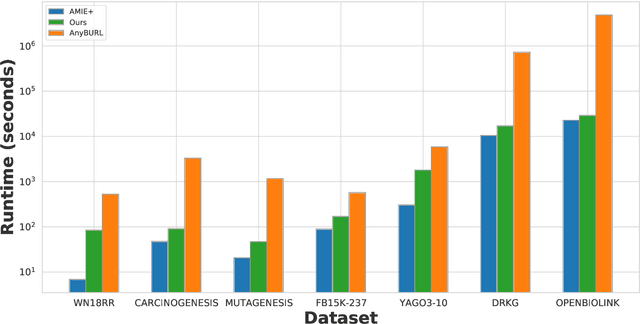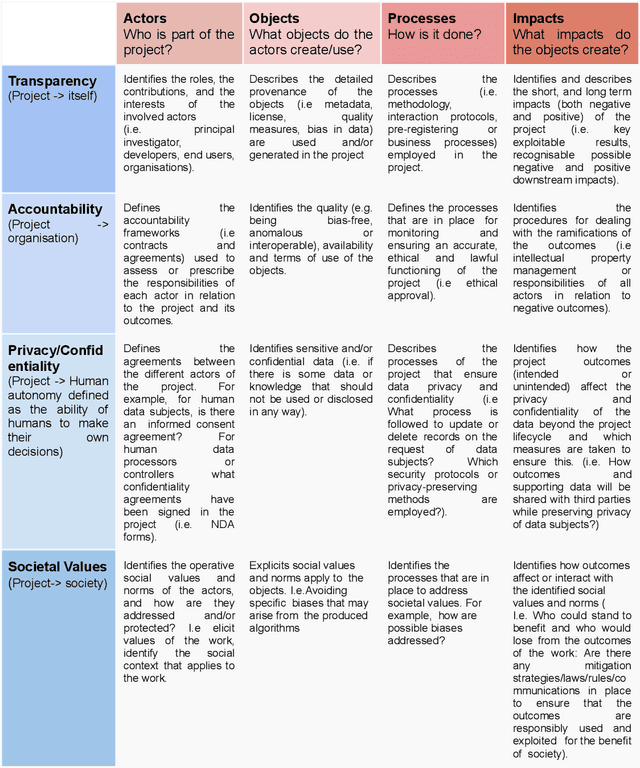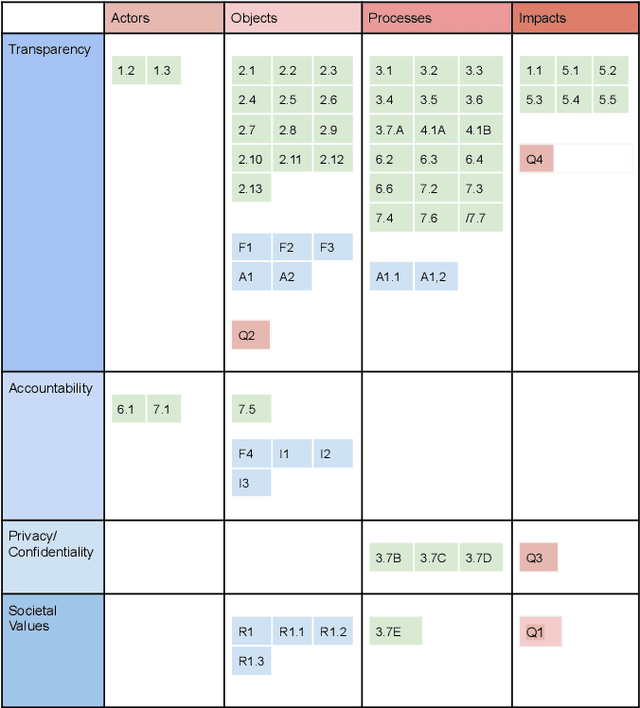Arif Yilmaz
Improving rule mining via embedding-based link prediction
Jun 14, 2024



Abstract:Rule mining on knowledge graphs allows for explainable link prediction. Contrarily, embedding-based methods for link prediction are well known for their generalization capabilities, but their predictions are not interpretable. Several approaches combining the two families have been proposed in recent years. The majority of the resulting hybrid approaches are usually trained within a unified learning framework, which often leads to convergence issues due to the complexity of the learning task. In this work, we propose a new way to combine the two families of approaches. Specifically, we enrich a given knowledge graph by means of its pre-trained entity and relation embeddings before applying rule mining systems on the enriched knowledge graph. To validate our approach, we conduct extensive experiments on seven benchmark datasets. An analysis of the results generated by our approach suggests that we discover new valuable rules on the enriched graphs. We provide an open source implementation of our approach as well as pretrained models and datasets at https://github.com/Jean-KOUAGOU/EnhancedRuleLearning
TAPS Responsibility Matrix: A tool for responsible data science by design
Feb 02, 2023


Abstract:Data science is an interdisciplinary research area where scientists are typically working with data coming from different fields. When using and analyzing data, the scientists implicitly agree to follow standards, procedures, and rules set in these fields. However, guidance on the responsibilities of the data scientists and the other involved actors in a data science project is typically missing. While literature shows that novel frameworks and tools are being proposed in support of open-science, data reuse, and research data management, there are currently no frameworks that can fully express responsibilities of a data science project. In this paper, we describe the Transparency, Accountability, Privacy, and Societal Responsibility Matrix (TAPS-RM) as framework to explore social, legal, and ethical aspects of data science projects. TAPS-RM acts as a tool to provide users with a holistic view of their project beyond key outcomes and clarifies the responsibilities of actors. We map the developed model of TAPS-RM with well-known initiatives for open data (such as FACT, FAIR and Datasheets for datasets). We conclude that TAPS-RM is a tool to reflect on responsibilities at a data science project level and can be used to advance responsible data science by design.
 Add to Chrome
Add to Chrome Add to Firefox
Add to Firefox Add to Edge
Add to Edge